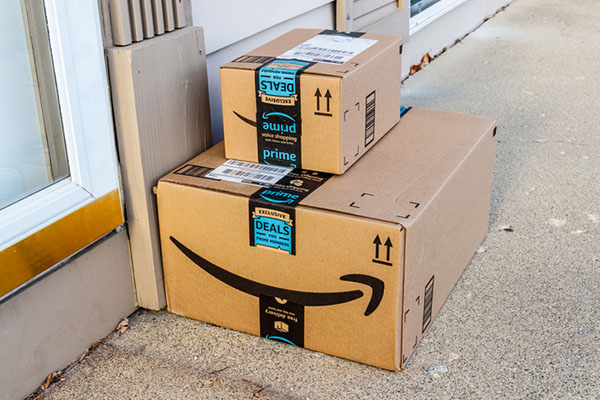Amazon preps to cease its third-party delivery service for non-Amazon packages in June
A report published in The Wall Street Journal this week stated that global e-commerce bellwether Amazon is preparing to shutter a delivery service geared towards “non-Amazon packages in June.
Citing a source, the report said that this program, which is only currently available in only a few United States markets, is being suspended, due to Amazon needing “people and capacity to handle a surge in its own customers’ orders,” adding that Amazon plans to bring on 100,000 warehouse workers and is intent on “shipping essential items during the coronavirus outbreak.”
Amazon initially started up this service in February 2018, with the intent of taking steps to roll out a delivery service for businesses that would position it as a direct competitor with the parcel duopoly of UPS and FedEx, according to a WSJ report published at that time. Its approach, Amazon said, was that the service would have Amazon picking up packages from businesses and shipping them to consumers, with third-party merchants selling goods through Amazon.com, starting with a launch in Los Angels and then expanding to more cities as part of a pilot program. Other key takeaways from the report noted that Amazon would like to open it up beyond third-party sellers to other businesses as well and that Amazon is “planning to undercut UPS and FedEx on pricing, although the exact rate structure is unclear.”
A noted parcel expert told LM that he thinks this Amazon offering never really got to the point where it was competing directly with UPS and FedEx.
“Amazon has been dealing with its own growth and has lately been struggling to keep up with that,” said Jerry Hempstead, president of Hempstead Consulting. “It will eventually be a competitor [to UPS and FedEx]. With all the critical mass that has come from the virus changing behaviors, it is going to take them quite a while to ‘grow into’ what they have. Critical mass means they have enough volume on a route to take business away from a regional, from the USPS, from UPS and get it onto its own Amazon delivery vehicles.”
But Hempstead that comes with several caveats, including: procuring vehicles and getting them stationed; interviewing, hiring and training drivers even with skyrocketing unemployment rates, which he said is likely to take a while. And he also observed that bringing in 100,000 people means more delivery facilities as well, given that 200 routes can come out of a single terminal.
Looking ahead to when coronavirus eventually passes, Hempstead said that people will have become even more accustomed to buying online, on smart phones, and apps, among other methods.
“A consequence of the virus is that its going to alter purchasing after the virus has passed, and Amazon will not see a huge decline in its business,” he said. Amazon is, I think, just acknowledging that.”
A research report issued by Ravi Shanker, Morgan Stanley transportation analyst, described this Amazon offering as a limited pilot program that had not been broadly rolled out as a full third-party service, with volumes relatively limited within Amazon.
“As part of the Amazon Shipping service, Amazon had the choice of using its own Amazon Logistics operation or external vendors like the USPS/UPS/FDX to deliver the packages,” he wrote. “If these customers were to switch delivery providers, it is hard to tell how much of this is incremental to USPS/UPS/FDX since Amazon could have already used them for last mile deliveries. However, this could transition the impacted customers to be direct customers of USPS/UPS/FDX rather than going through Amazon’s contract which could have an impact on pricing for those customers.”
Robert W. Baird & Co. analyst Ben Hartford observed in a research note that as service delays and congestion have become well-known in recent weeks, this announcement by Amazon underscores the need for adaptability among global logistics networks to meet rapidly changing demand patterns related to challenges due to coronavirus.
As for what this development means for UPS and FedEx, Hartford explained it brings what he called unprecedented service challenges at Amazon—and the entire transportation network, due to coronavirus—to light, and it also highlights the essential nature of both UPS’ and FedEx’s parcel networks, especially during periods of elevated demand and service imbalances.”
Amazon's plans to pull back this service, coupled with its current lack of volume in the test markets it is in and its problems delivering all of the packages that are sold on Amazon or through FBA, are not helpful from a competitive standpoint for shippers, noted John Haber, Founder and CEO of Atlanta-based Spend Management Experts.













